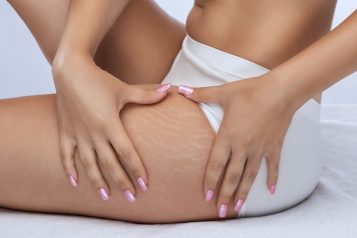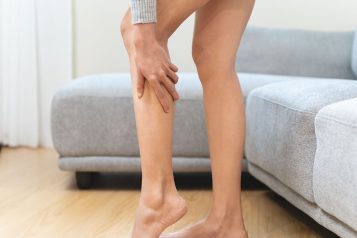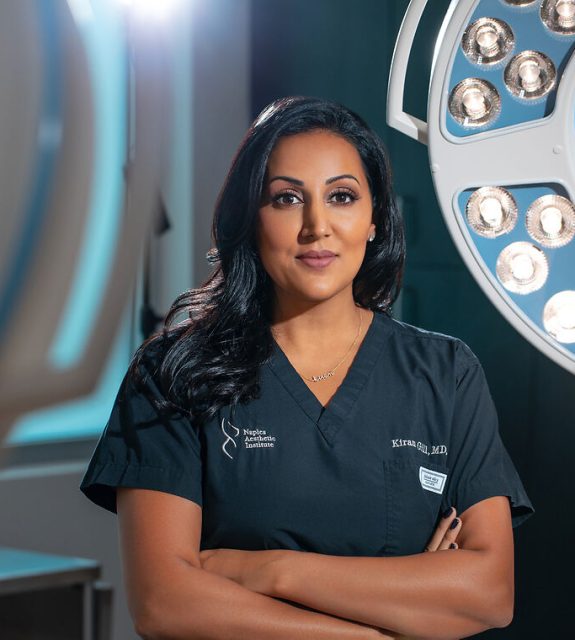Hair loss affects millions of individuals, causing frustration and embarrassment. Fake information and old wives’ tales only add to the anxiety and confusion. One pervasive myth is that creatine, a widely used supplement among athletes, leads to hair loss. To correct the record, we spoke with Dr. Ken Anderson, head surgeon at the Anderson Center for Hair. Dr. Anderson helps us debunk this myth and provides evidence-based insights into the real relationship between creatine and hair loss. Read on for our Q&A separating fact from fiction.
 Photo Credit: Courtesy of The Anderson Center for Hair
Photo Credit: Courtesy of The Anderson Center for Hair
Q: What is creatine and why is it popular among athletes?
Dr. Anderson: "Creatine is a naturally occurring compound found in muscle cells. It helps produce energy during high-intensity exercise. Creatine is widely used by athletes and fitness enthusiasts to enhance muscle mass, strength, and recovery. It's well-documented for its benefits in improving athletic performance and is one of the most researched supplements available. I use it myself."
Q: Where did the myth that creatine causes hair loss come from?
Dr. Anderson: "Unfortunately, the results of research can be taken out of context and shared widely, creating rumors and half-truths that confuse worried patients. That’s the case here, too. The myth that creatine causes hair loss was likely born from a study conducted by van der Merwe et al. in 2009. The nugget of truth from the study that makes the myth believable is that researchers found college-aged male rugby players who supplemented with creatine experienced a statistically significant increase in serum dihydrotestosterone (DHT) levels—a hormone linked to hair loss. Specifically, DHT levels increased by 56% after a seven-day loading period and remained 40% above baseline after the 14-day maintenance phase."
Q: Why does DHT matter? Can you explain the role of DHT in hair loss?
Dr. Anderson: "Dihydrotestosterone, which we shorthand as DHT, is a derivative of testosterone, converted by the enzyme 5-alpha-reductase. In males, DHT binds to androgen receptors in hair follicles, causing them to shrink and produce thinner hairs. However, the relationship between DHT and hair loss is complex and not solely dependent on DHT levels. While DHT is a contributing factor, genetics, hormone sensitivity, and other elements also play crucial roles."
Q: How significant were the findings of the van der Merwe study?
Dr. Anderson: "It’s important to look at the bigger picture and note that the results of the van der Merwe study have not been replicated in other research. The study had a small sample size of only 16 participants, and the observed increase in DHT, while statistically significant, remained within normal clinical limits. None of the rugby players actually reported losing hair. Even if they did, intense resistance exercise itself can cause fluctuations in androgenic hormones, including DHT, so we can’t point to creatine as the culprit."
Q: Is there other scientific evidence about the effects of creatine on hair loss?
Dr. Anderson: "A broader review of the literature reveals no consistent evidence linking creatine supplementation to increased hair loss. To date, 12 other studies have investigated the effects of creatine on testosterone and DHT levels, with most finding no significant changes. And no studies have reported direct hair loss or balding as a consequence of creatine supplementation.”
Interested in learning more? Beyond hair loss, there are also other misconceptions about creatine that have been debunked. Check it out here.
Q: What should someone do if they’re concerned about hair loss?
Dr. Anderson: "If you are considering creatine supplementation and are still concerned about hair loss, the first step is to seek professional advice. A complimentary consultation is the best first step to accurately determine the cause of your hair loss and develop an effective treatment plan tailored to your specific needs. Most people think they should call their dermatologist, but most derms do not have hair-specific expertise. A consultation with a hair loss and restoration surgeon is the key to success. At the Anderson Center for Hair, we offer these consultations in person at our Atlanta and Alpharetta locations, as well as virtually, to ensure that everyone has access to expert advice regardless of where they live.
"During a consultation, you can expect a thorough examination of your scalp and hair, a discussion about your medical history, and possibly some diagnostic tests. This comprehensive approach helps determine whether hair loss is due to genetic factors, medical conditions, lifestyle habits, or other causes. Based on this assessment, a range of treatment options can be considered. The sooner you address the signs of hair loss, the more effective the treatments can be."
For more information about the Anderson Center for Hair and Dr. Anderson, visit www.AtlantaHairSurgeon.com or call 404-256-HAIR (4247).
For more information, visit The Anderson Center for Hair's social media:






















